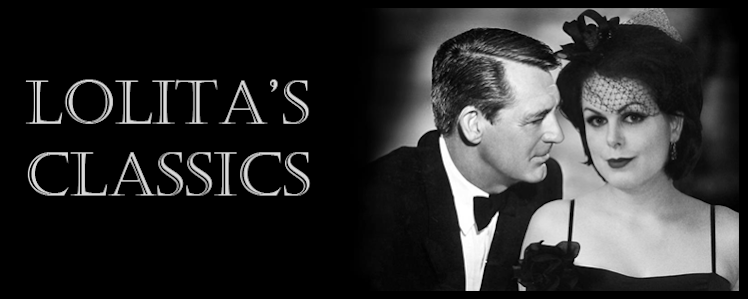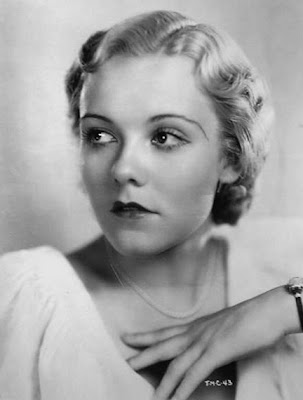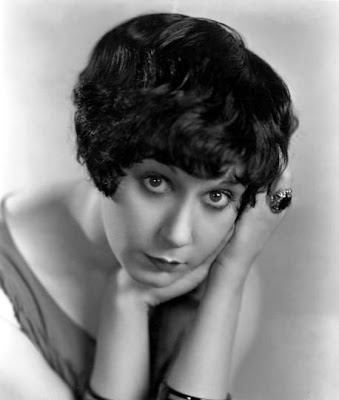 Platinum Blonde
Platinum BlondeDirector:
Frank CapraUSA 1931
90 min
Like many other 1930's and 1940's comedies, the main character is a news reporter. His name is Stew Smith (played by
Robert Williams, who tragically died three days after the release of the film by appendicitis, just when his career started taking off). Smith is a wise-cracking, slightly annoying but charming fellow, who one day covers a scandal story involving the socialite family Schuyler. Of course, the family has a beautiful charming daughter who catches his eye, Anne (
Jean Harlow). After some Capraesque gnabbing, they fall in love and elope quite spontaniously. The marriage is not approved by the refined Schuyler family, and breaks the poor heart of Stew's colleague Gallagher (beautiful
Loretta Young), who is secretely in love with him.
Now, isn't that a promising plot?
 Stew in the centre of his colleagues' attention, keeping eye contact with his best friend Gallagher.
Stew in the centre of his colleagues' attention, keeping eye contact with his best friend Gallagher.
As if this wasn't enough, the newly weds soon realize that they both have taken for granted that the other person would assimilate themselves with their lifestyle - Stew finds it crystal clear that Anne will move to his apartment and live on a reporter salary, while Anne thinks it's obvious that Stew will learn manners and live in the family's mansion.
Eventually, of course, this causes some problems for the couple.
Scene: The wonderfully artistic waterfall scene with Stew and Anne. How could one not
fall in love?Scene: I won't wear garters!Platinum Blonde is a pleasant triangle drama with great actors in every role. (I've said that a lot lately, haven't I?) I haven't seen a lot of
pre-code Capra yet (something I definitely will do something about), but I must say that this film had a very different ring to it than other Capra productions. I had expected a more escapistic tone in it (after all, 1931 was the beginning of the Depression), but instead
Platinum Blonde turned out to be more of a solid romantic drama/comedy. (Why is he so hard to categorize?)
But maybe I'm just imagining. The important thing is that it was a great film, and to this date I haven't yet seen anything signed Frank Capra that I didn't love.
It's also funny to see similarities between Capra's movies. How about the leading man here being called "Cinderella Man" in the newspapers? Or the scene where the leading man and a butler have fun with echoing halls? Yes, I think you're with me here. (
Check here.) A director making
references to himself is always amusing.

There are some interesting trivia for this film, aside from the unexpected death of the leading man. (Think how cinema history could have looked like under different circumstances... Perhaps Robert Williams would have played Nick Charles instead of William Powell? Rhett Butler or Sam Spade?)
The title of the film was originally "Gallagher", but was changed to
Platinum Blonde to boost Harlow's career. I always thought the title was kind of weird, since the plot hasn't anything to do with platinum blonde hair except that Harlow has it. Talk about changing the point of focus with that title switch.
I also read that, at the time, the critics totally
hated Harlow's performance, mocking her and stating that she ruined every scene she was in. Maybe her laid back acting style was too modern for the contemporary audience (or at least for the all-knowing critics).
I guess we can be happy that critics see the film in a totally different light today, because it deserves to me approved - it works very good, even over 75 years later.
(But am I the only one who thinks that Stew rushes into fights a little too easily? Makes the character, who otherwise is so relaxed and happy-go-lucky, seem very unstable. What does he hide?)


Quotes:
Stew Smith: Yeah, I know those bluenoses. Their ancestors refused to come over on the Mayflower because they didn't want to rub elbows with the tourists... so they swam over!
Dexter Grayson: Where were you yesterday?
Anne Schuyler: Oh, Stew and I went for a long ride. Dexter, is there any finishing school we could sent him to?
Dexter Grayson: Yes - Sing Sing!
Stew Smith: Say, I interviewed a swell guy the other day: Einstein. Yeh, swell guy. Little eccentric, but a swell - doesn't wear, doesn't wear any garters. Neither do I, as a matter of fact.
[Anne showing Stew into the library]
Stew Smith: What country is this library in? Miss Schuyler, how about car fare back to the front door, huh?


 Our Gang, as themselves (Farina, Stymie, Chubby, Mary Ann Jackson, Shirley Jean Rickert, Echo, Wheezer and Pete the Pup.)
Our Gang, as themselves (Farina, Stymie, Chubby, Mary Ann Jackson, Shirley Jean Rickert, Echo, Wheezer and Pete the Pup.)


































